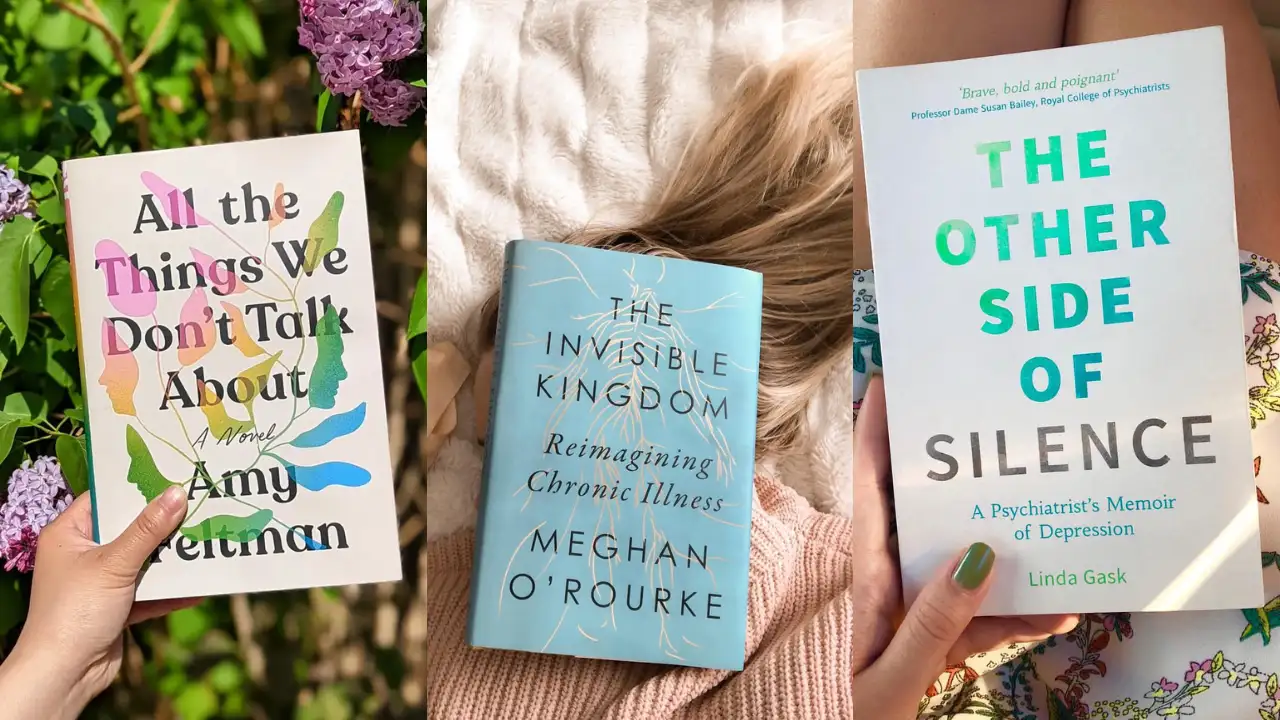By Girish Shukla
Copyright timesnownews

For too long, conversations around mental health have been framed by neat slogans, reductive science, and quick-fix solutions. The reality is far more complex and far more human. Myths about chemical imbalances, “normal” sadness, or who deserves care have created barriers instead of bridges. Books that question these myths do something profound: they give us language for experiences that resist easy labels and help us see mental health not as an exception but as part of being alive. Below is a carefully chosen list of books that challenge conventional wisdom while respecting the lived experience of those who suffer. They do not claim to offer perfect answers. Instead, they invite us to sit with the messiness of human minds, bodies, and lives. Also Read: 10 Psychology Books That Decode Everyday Behaviour Better Than Any Internet Quiz 1. Brain Energy by Christopher M. Palmer Harvard psychiatrist Christopher Palmer reframes mental illness as a metabolic and mitochondrial condition, questioning the chemical imbalance narrative. His research links psychiatric conditions to cellular energy dysfunction, shifting the focus from symptom suppression to root causes. The book bridges psychiatry, neurology, and nutrition, offering a bold rethinking of how lifestyle, diet, and medical science intersect with mental health. It breaks the myth that medication alone is the inevitable route to healing and introduces a more integrative, biology-grounded model. 2. The Other Side of Silence by Linda Gask Linda Gask, both a psychiatrist and someone who has lived with depression, opens a raw window into the professional and personal sides of mental illness. She shatters the assumption that doctors are immune to the struggles of their patients and reveals how stigma persists even within the medical community. Through memoir and clinical insight, she demonstrates that vulnerability and expertise can co-exist. It is a rare book that humanises the person behind the white coat while dignifying those who sit across from it. 3. Cracked: Why Psychiatry Is Doing More Harm Than Good by James Davies James Davies, trained as an anthropologist and therapist, critically examines the mental health industry’s obsession with labels and drugs. He investigates how normal human suffering has been medicalised and pathologised, often at the expense of meaningful care. Drawing on interviews with professionals and patients alike, Davies exposes systemic failures without resorting to conspiracies. Instead, he builds a compelling argument for a more humane approach. The book dismantles the myth that psychiatry has all the answers while still valuing those it has helped. 4. Your Brain on Trauma by Dr. Faith G. Harper Faith Harper writes with humour, compassion, and clarity about the long shadow trauma casts on the brain and body. She challenges the myth that trauma recovery follows a neat, staged model and instead embraces the reality that healing is messy, uneven, and deeply personal. With her trademark irreverence, she explains neuroscience in digestible terms and provides readers with practical tools. Rather than shaming or prescribing, she reassures that struggling is not failure but part of being human in the aftermath of harm. 5. Ordinary Insanity by Sarah Menkedick Sarah Menkedick blends memoir with investigative journalism to expose maternal anxiety as a hidden epidemic. She challenges the myth of maternal bliss by illuminating the darker emotional realities new mothers often face. Through stories of women navigating overwhelming fear and intrusive thoughts, she questions why society equates motherhood with perfection. The book validates experiences often brushed aside as weakness and broadens our understanding of postpartum identity. It is a necessary correction to cultural narratives that silence mothers in the name of idealised joy. 6. A Cure for Darkness: The Story of Depression and How We Treat It by Alex Riley Alex Riley maps the long history of how we have tried to “cure” depression, from electroshock therapy to psychedelics. His account reveals the limits of each method while questioning the rush to eliminate symptoms at all costs. Interweaving his personal struggles with depression, Riley challenges the assumption that it is always a disease to be eradicated rather than a complex, human response to life. The book invites readers to consider whether our obsession with cures sometimes neglects deeper needs for care and context. 7. The Invisible Kingdom: Reimagining Chronic Illness by Meghan O’Rourke Meghan O’Rourke offers a searing memoir about living with chronic illnesses often dismissed as psychosomatic. She critiques a medical system that routinely gaslights patients, particularly women, when their suffering lacks visible proof. By dismantling the mind-body divide, O’Rourke reveals how chronic conditions blur the lines between physical and psychological health. Her work challenges the myth that invisible illness is “less real” and underscores how systemic bias amplifies personal pain. It is both deeply personal and politically urgent. 8. The Protest Psychosis by Jonathan Metzl Jonathan Metzl delivers a sharp study of how psychiatry reflected racial and political anxieties in the United States during the 1960s. He documents how schizophrenia was disproportionately diagnosed in African American men, reshaping the condition into a label of dangerousness. This history shows how mental health diagnoses are not neutral but shaped by cultural fears. Metzl’s book confronts the myth that psychiatry stands outside politics and challenges readers to see diagnosis as entangled with power, race, and social control. 9. Nobody’s Normal by Roy Richard Grinker Roy Richard Grinker, an anthropologist, traces how societies across history have drawn and redrawn the line between “normal” and “abnormal.” He argues that mental illness is not a fixed category but one constantly shifting with cultural values. By examining stigma across time and geography, he dismantles the myth of a universal definition of normality. Grinker’s research demonstrates that what we call illness often reflects social boundaries rather than scientific truth. It is an expansive, compassionate call for dismantling stigma. 10. All the Things We Don’t Talk About by Amy Feltman Amy Feltman’s novel offers a fictional yet piercing portrayal of inherited trauma, emotional repression, and neurodivergence. Through the story of a genderqueer teenager and their estranged father, the book illustrates how silence and avoidance shape lives. It shatters the myth that mental health must always be framed clinically, showing instead how art and storytelling embody truths that science cannot. While not a psychology textbook, its emotional acuity makes it essential reading for understanding how mental health plays out in families. Also Read: 10 Psychology Books That Reveal the Real Science Behind Happiness These books ask us to pause before accepting tidy myths about mental health. They remind us that diagnoses, treatments, and cultural narratives are not neutral but shaped by history, power, and human complexity. Together, they carve out space for more compassionate, nuanced, and honest conversations. If there is a giveaway here, it is this: mental health is not about fixing broken brains but about honouring the vast spectrum of human experience. Reading these books may not give definitive answers, but they will leave you better equipped to live alongside uncertainty with empathy and grace.



